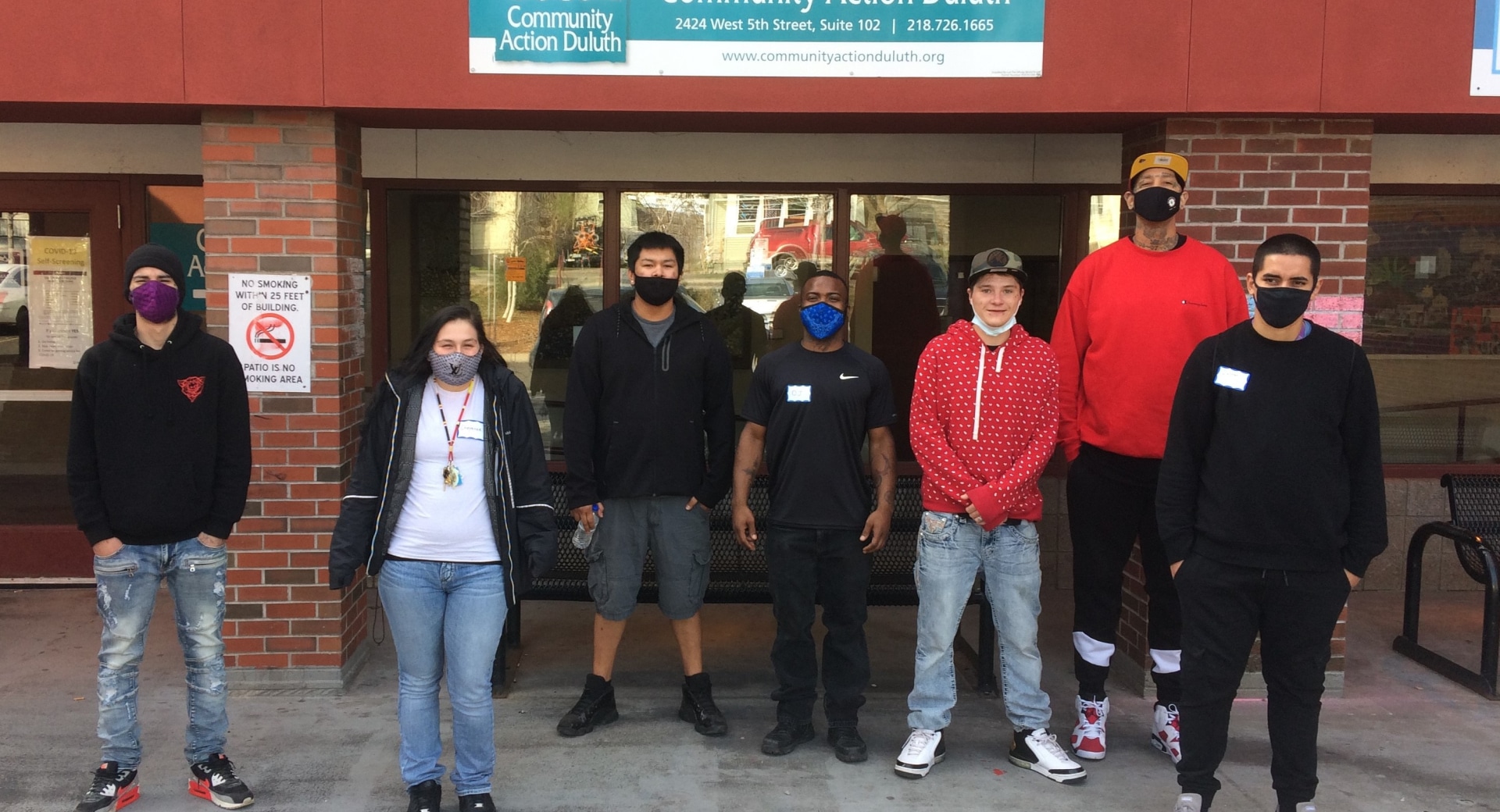
Community Action Duluth (CAD) is wrapping up the first year of its Community Construction employment training program – a partnership with Duluth Housing and Redevelopment Authority and Wisconsin Indianhead Technical College to provide a hands-on one-year certification in basic carpentry.
“The program is focused on addressing several issues in our community,” said Jeff Longenecker, executive director of CAD, “providing a path to living-wage employment in the building trades to people facing barriers to employment, while at the same time addressing the affordable housing issue in our community.”
The program does this by offering transitional employment opportunities in which participants remodel homes for families with low incomes, and learn trade skills in the process. Participants will receive employment and financial coaching as part of their paid work week, to assist them in reaching the goal of finding and transitioning into permanent employment, and they are expected to meet regularly with their coach.
“Our community, like most of our nation, has a lack of skilled tradespeople to fill all of the trade jobs, which is known as the skills gap,” Longenecker added. “Wage gaps also exist for multiple demographics. This program seeks to close both of these gaps by providing un- and under-employed people with a foothold into skilled trade jobs on a path to apprenticeships.”
Participants from the first class of four are finishing up this summer and the incoming class of seven starts this May. With additional funding, there is hope the program can continue to expand.
Participants learn hands-on skills by remodeling homes for the Duluth HRA and potentially other building and remodeling projects. Some of the hard skills taught include: tool safety, measuring, construction math, blueprint reading, framing, insulation and drywall installation, roofing, and window and door installation. They also learn soft skills for landing and keeping jobs like resume writing and interviewing. In addition to employment coaching, CAD also has coaches who will help them with transportation and personal finances so that they can make it to their jobs and use their wages wisely to improve their self-sufficiency.
“Ideally, participants will further their career path after completing the program by entering union apprenticeships, acquiring a permanent living wage, continuing on to higher education, or going into business for themselves,” Longenecker concluded.
The program is full right now, but if you are interested in getting involved with this program in the future you may contact mark@communityactionduluth.org. Applications will open in January 2022.

